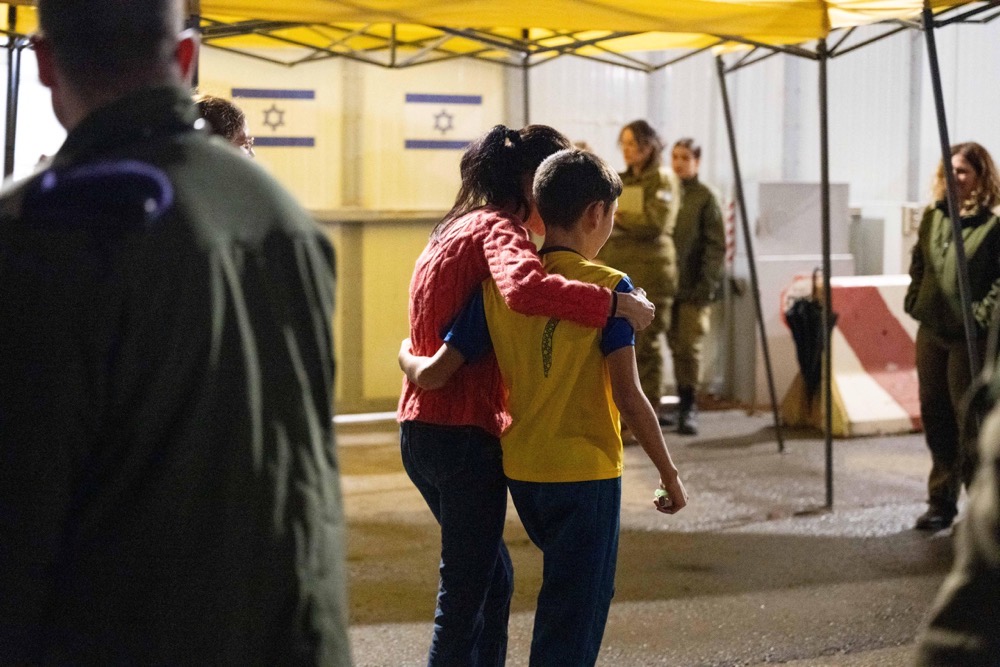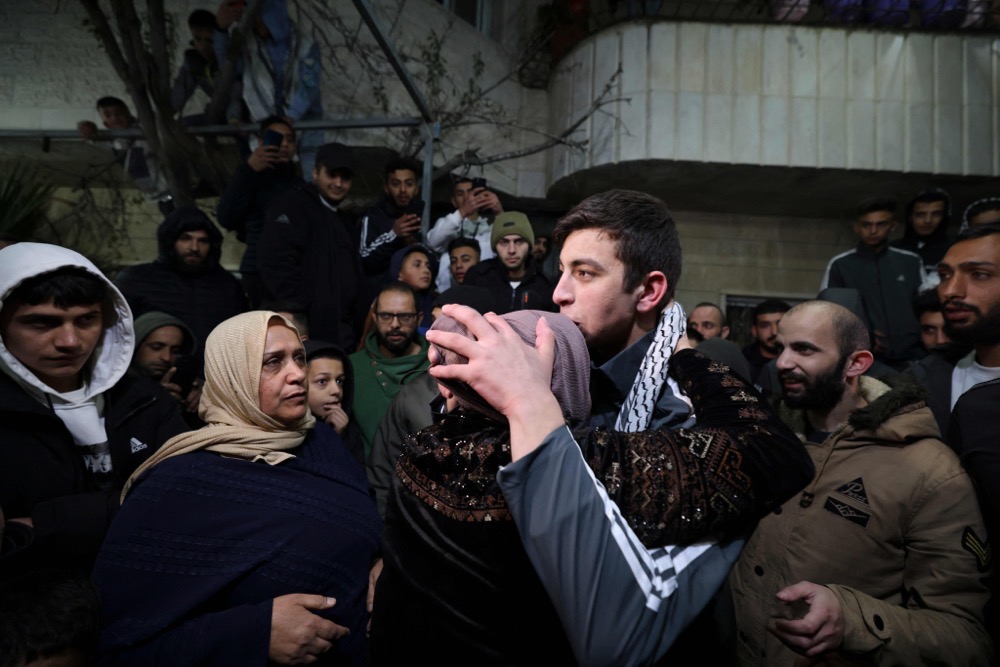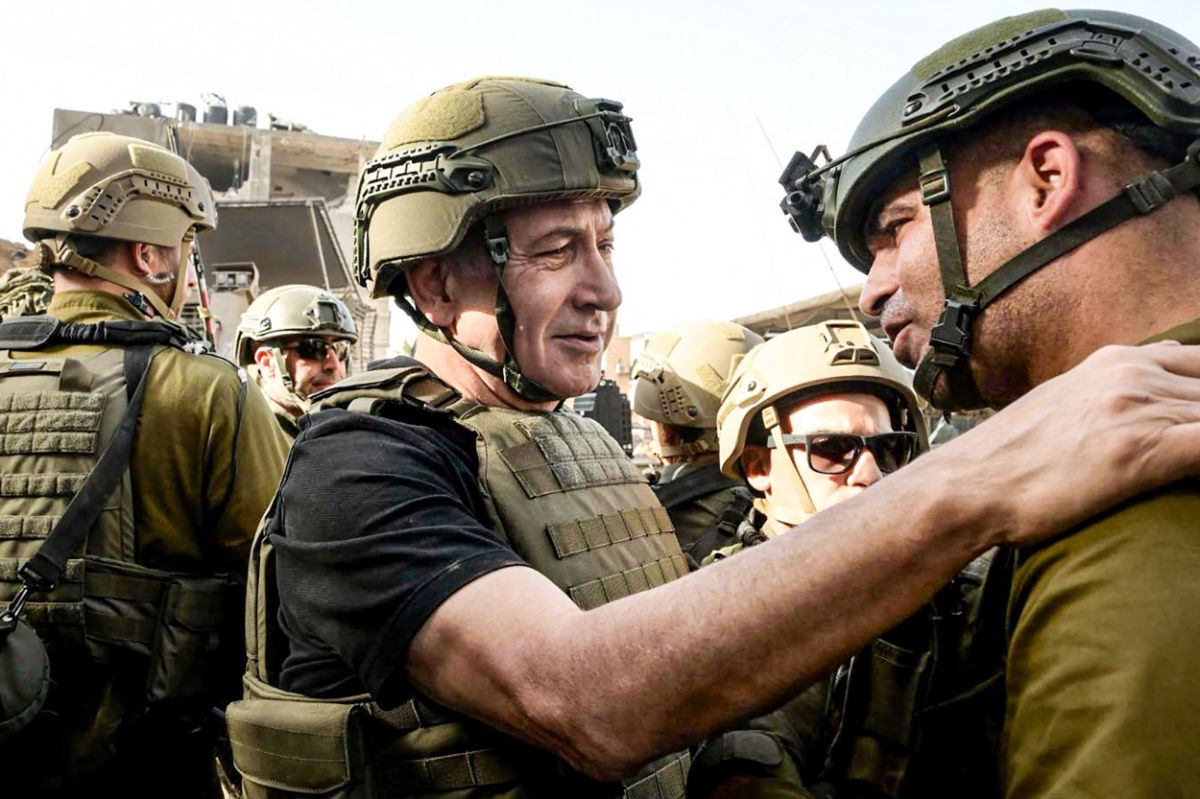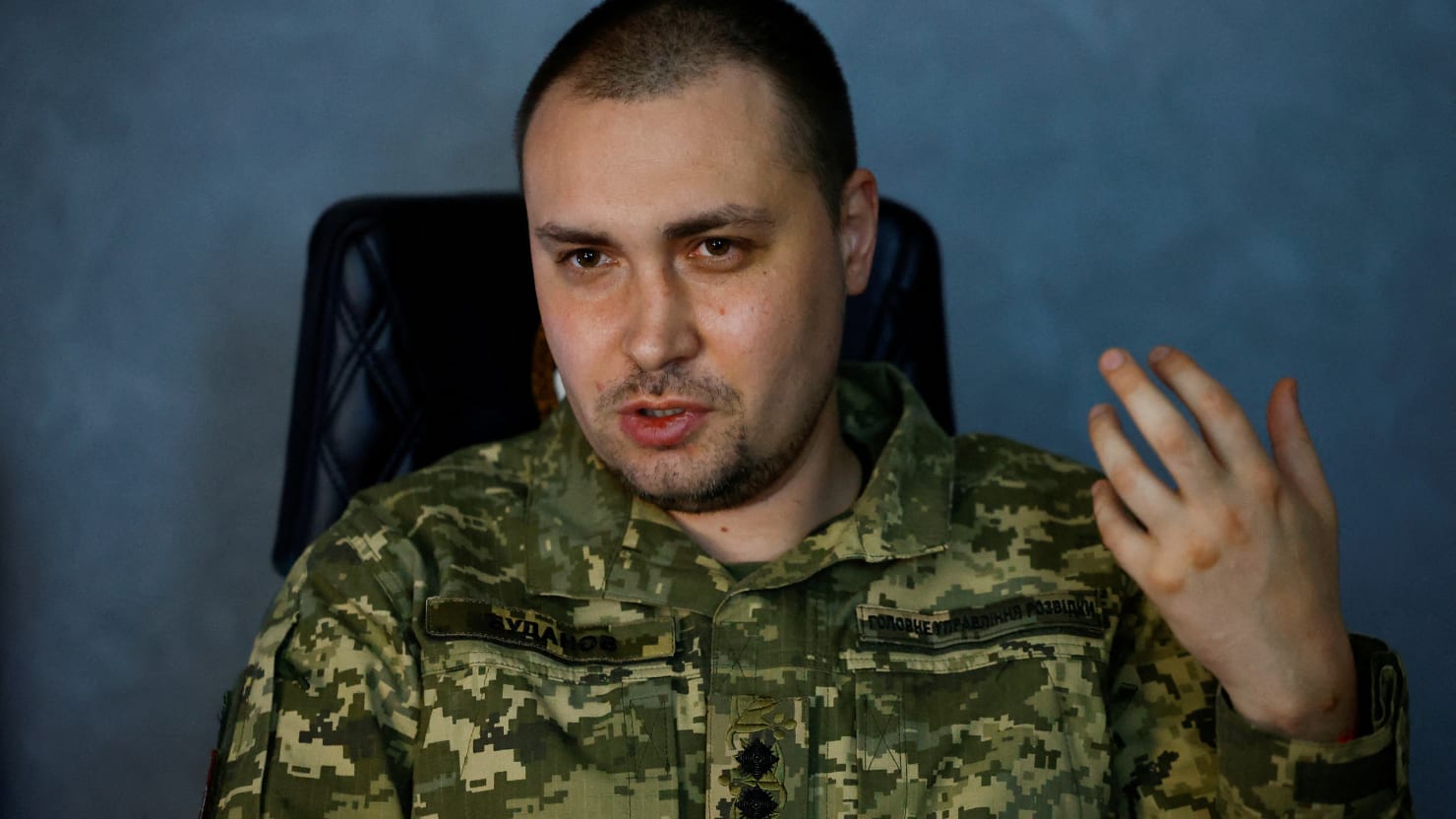The News And Times #News #Times #NewsAndTimes #NT #TNT #Israel Israel #World World #USA USA#POTUS POTUS #DOJ DOJ #FBI FBI #CIA CIA #DIA DIA #ODNI ODNI
Putin Russia #Putin #Russia #GRU GRU
6:24 AM 11/28/2023
I say: Give Aliyev 2 The KGB Old Turkey a boot! Regime change,… pic.twitter.com/PeCJdi1Qdr— Michael Novakhov (@mikenov) November 28, 2023
Day: November 28, 2023

Azerbaijan’s pro-government media has been ramping up its anti-U.S. rhetoric and the government is publicly musing about banning the activities of USAID, the U.S. government’s international development arm.
A campaign against supposed “U.S. spies” continued with the arrest of a fourth media manager in a week’s time.
The sharp anti-U.S. turn is in line with Azebaijan’s recent rejection of Western mediation of the peace talks with its rival Armenia and increasing preference for settling the conflict in a bilateral format or through the mediation of authoritarian regional powers like Turkey and Russia.
On November 27, the U.S. embassy in Baku canceled a planned meeting with Azerbaijani alumni of U.S. universities. The decision came shortly after pro-government outlet Qafqazinfo alleged, without providing evidence, that the event’s invitees had been recruited to spy for the U.S. during their studies.
“According to our information, the law enforcement agencies of Azerbaijan are already aware of the issue, it is reported that the event will be monitored in order to expose the participants in the future,” it read.
In its statement to local news outlet Turan, the embassy did not address the allegation.
“The embassy looked forward to celebrating the anniversaries of our two flagship educational and cultural exchange programs, as well as highlighting the achievements of the Azerbaijani community of US-educated graduates and their contributions to their communities,” it said. “We look forward to rescheduling soon.”
Many in Azerbaijan are not taking the allegation seriously. Some observers have noted that many current government officials have studied in the U.S.
“Articles about U.S.-educated graduates are cheap publicity. These are baseless, low and ridiculous accusations. There are a large number of foreign-educated personnel who serve this government wholeheartedly,” political analyst Anar Mammadli wrote on Facebook.
“The number of foreign-educated personnel in the opposition camp can be counted on one hand. The government is offended by the Biden government and expresses its resentment in this low form. They should demonstrate their resentment in a more coherent and logical way and explain the points they disagree with.”
Azerbaijan’s law enforcement made no statement on Qafqazinfo’s report about the alumni gala.
But arrests of independent media managers have continued amid the pro-government media’s campaign of painting independent content creators as “U.S. spies.”
On November 27, police arrested the chief of Kanal13 internet television, Aziz Orujov, and searched his house. A criminal case was launched against him on charges of illegal construction. He was placed in pretrial detention for three months.
A photo of Orujov saying goodbye to his young daughter during his arrest went viral on social media.
“It’s not a photo of the day, it’s a photo of the era. It symbolizes [President] Ilham Aliyev’s policy to make us more like Central Asia,” opposition leader Ali Karimli wrote on Facebook. “It’s 2023 on the calendar, but feels like 1937,” he said, referring to the nadir of the Soviet purges.
It wasn’t Orujov’s first arrest. He was jailed in 2017 on charges of illegal entrepreneurship and abuse of power, and released on probation a year later.
Kanal13 is the first internet television in Azerbaijan, founded in 2008. Its YouTube channel has 1.59 million subscribers and publishes some content in English.
Orujov’s arrest follows those of the senior management of the investigative news outlet Abzas Media. Director Ulvi Hasanli, Editor-in-Chief Sevinj Vagifgizi, and Deputy Director Mahammad Kekalov were charged with smuggling after law enforcement claimed to have recovered 40,000 euros of cash at Abzas’ office in Baku. Each of the three were given pretrial detention terms of roughly four months.
After the arrest, pro-government news agency Report.az published a series of articles targeting Abzas and other independent outlets, arguing that they were funded by the U.S. One such piece specifically attacked Abzas Media and provided a list of its alleged Western donors.
On November 28, the Azerbaijani Foreign Ministry summoned the ambassadors of the U.S., France, and Germany.
“In the meetings, it was brought to the attention that AbzasMedia news portal carried out illegal financial operations with the participation of organizations registered in these countries, as well as that the embassies of the mentioned countries were also involved in this activity, and a serious objection was expressed to this activity,” the foreign ministry said in an English-language statement.
Azerbaijani pro-government media’s attacks against “U.S. spies” started after the country’s relations with the U.S. deteriorated over disagreements on peace negotiations with Armenia and Washington’s move to boost support for Armenia. That support is aimed at aiding Yerevan’s attempt to pivot away from its traditional strategic ally Russia and helping it accommodate the 100,000-some Armenians displaced from Nagorno-Karabakh after Azerbaijan’s offensive to take over the region in September.
On November 21, Hikmat Hajiyev, President Ilham Aliyev’s senior advisor on foreign affairs, took exception to USAID administrator Samantha Power’s criticism of Azerbaijan’s military operation, and declared: “There is no place for USAID operation in Azerbaijan any longer!”
On November 28, U.S. Secretary of State Antony Blinken had a phone conversation with President Aliyev. According to the readout on the Azerbaijani presidential website, the sides agreed to allow visits by high-ranking officials to each other’s countries.
The wife of Ukraine’s spy chief has been hospitalized after someone allegedly poisoned her food.
A spokesperson for Ukrainian military intelligence confirmed the flurry of reports that broke early Tuesday about Marianna Budanova’s condition. The 30-year-old wife of Kyrylo Budanov has indeed been poisoned by heavy metals and is undergoing treatment, Andriy Yusov told Radio Free Europe.
Unnamed intelligence sources cited by Ukrainska Pravda said Budanova is thought to have eaten something containing the poison. Several staffers of the Main Intelligence Directorate were also poisoned but suffered less severe symptoms, according to the report.
Budanov himself is said to be perfectly fine, showing no symptoms of poisoning.
“These substances are not used in any way in everyday life and military affairs,” a source told the Ukrainian news outlet Babel. “Their presence may indicate a purposeful attempt to poison a specific person.”
There is no indication of who attempted the poisoning at this stage, although it is a known tactic favored by Russia’s GRU military intelligence agency.
The independent Russian news outlet Meduza cited Valery Kondratyuk, the former head of the Ukrainian foreign intelligence service, confirming that Budanova is expected to survive.
“I just spoke with Kyrylo Alekseevich, he confirmed the poisoning,” Kondratyuk was quoted saying, adding that “certain organs were affected.”
“Now investigators are working with her, finding out how and under what circumstances the poisoning occurred; the SBU is looking into this,” he said.
- Eleven Israelis freed by Hamas entered Israel Monday night after more than seven weeks in captivity in Gaza
- Thirty-three Palestinians released by Israel arrived early Tuesday in east Jerusalem and West Bank town of Ramallah
TEL AVIV, Israel: Israel and Hamas agreed to extend their cease-fire for two more days past Monday, raising the prospect of further exchanges of militant-held hostages for Palestinians imprisoned by Israel and a longer halt to their deadliest and most destructive war.
Eleven Israeli women and children, freed by Hamas, entered Israel Monday night after more than seven weeks in captivity in Gaza in the fourth swap under the original four-day truce, which began Friday and was due to run out. Thirty-three Palestinian prisoners released by Israel arrived early Tuesday in east Jerusalem and the West Bank town of Ramallah. The prisoners were greeted by loud cheers as their bus made its way through the streets of Ramallah.
The deal for two additional days of cease-fire, announced by Qatar, raised hopes for further extensions, which also allow more aid into Gaza. Conditions there have remained dire for 2.3 million Palestinians, battered by weeks of Israeli bombardment and a ground offensive that have driven three-quarters of the population from their homes.
Israel has said it would extend the cease-fire by one day for every 10 additional hostages released. After the announcement by Qatar — a key mediator in the conflict, along with the United States and Egypt — Hamas confirmed it had agreed to a two-day extension “under the same terms.”

Eitan Yahalomi, 12, walks with his mother at the Kerem Shalom border crossing. (Reuters)
But Israel says it remains committed to crushing Hamas’ military capabilities and ending its 16-year rule over Gaza after its Oct. 7 attack into southern Israel. That would likely mean expanding a ground offensive from devastated northern Gaza to the south.
Monday’s releases bring to 51 the number of Israelis freed under the truce, along with 19 hostages of other nationalities. So far, 150 Palestinians have been released from Israeli prisons.
After weeks of national trauma over the roughly 240 people abducted by Hamas and other militants, scenes of the women and children reuniting with families have rallied Israelis behind calls to return those who remain in captivity.
“We can get all hostages back home. We have to keep pushing,” two relatives of Abigail Edan, a 4-year-old girl and dual Israeli-American citizen who was released Sunday, said in a statement.
Hamas and other militants could still be holding up to 175 hostages, enough to potentially extend the cease-fire for two and a half weeks. But those include a number of soldiers, and Hamas is likely to make much greater demands for their release.
FOURTH RELEASE
The newly released hostages included three women and nine children — including 3-year-old twin girls and their mother — from the kibbutz Nir Oz, a community near Gaza that was hard hit in Hamas’ Oct. 7 attack. The kibbutz said 49 of its residents remain in captivity, including the father of the twins. The Israeli military said late Monday that the hostages were undergoing initial medical checks in Israel before being reunited with their families.
Most of the hostages freed so far have appeared to be physically well. But 84-year-old Elma Avraham, released Sunday, was airlifted to Israel’s Soroka Medical Center in life-threatening condition because of inadequate care, the hospital said.
Avraham’s daughter, Tali Amano, said her mother was “hours from death” when she was brought to the hospital. Avraham is currently sedated and has a breathing tube, but Amano said she told her of a new great-grandchild who was born while she was in captivity.
Avraham suffered from several chronic conditions that required regular medications but was stable before she was kidnapped, Amano said Monday.
So far, 19 people of other nationalities have been freed during the truce, mostly Thai nationals. Many Thais work in Israel, largely as farm laborers.

Palestinian prisoner Khalil Zama’ (R) hugs his mother after being released from an Israeli jail. (AP)
France said three of the hostages released Monday were French-Israeli dual citizens, two 12-year-olds and one 16-year-old. The French government is ‘’working tirelessly’’ to free five other French citizens held hostage, the French Foreign Ministry said in a statement.
The Palestinian prisoners released so far have been mostly teenagers accused of throwing stones and firebombs during confrontations with Israeli forces, or of less-serious offenses. But some were convicted in alleged attempts to carry out stabbings, bombings and shootings. Many Palestinians view prisoners held by Israel, including those implicated in attacks, as heroes resisting occupation.
The freed hostages have mostly stayed out of the public eye, but details of their captivity have started to trickle out.
Merav Raviv, whose three relatives were released Friday, said they had been fed irregularly and lost weight. One reported eating mainly bread and rice and sleeping on a makeshift bed of chairs pushed together. Hostages sometimes had to wait for hours to use the bathroom, she said.
In Washington, White House National Security Council spokesman John Kirby welcomed the extension of the truce.
“We would, of course, hope to see the pause extended further, and that will depend upon Hamas continuing to release hostages,” Kirby told reporters.
RESPITE IN GAZA
More than 13,300 Palestinians have been killed since the war began, roughly two-thirds of them women and minors, according to the Health Ministry in Hamas-ruled Gaza, which does not differentiate between civilians and combatants. More than 1,200 people have been killed on the Israeli side, mostly civilians killed in the initial attack. At least 77 soldiers have been killed in Israel’s ground offensive.
The calm from the truce allowed glimpses of the destruction wreaked by weeks of Israeli bombardment that leveled entire neighborhoods.
Footage showed a complex of several dozen multistory residential buildings that had been pummeled into a landscape of wreckage in the northern town of Beit Hanoun. Nearly every building was destroyed or severely damaged, some reduced to concrete frames half-slumped over. At a nearby UN school, the buildings were intact but partially burned and riddled with holes.
The Israeli assault has driven three-quarters of Gaza’s population from their homes, and now most of its 2.3 million people are crowded into the south. More than 1 million are living in UN shelters. The Israeli military has barred hundreds of thousands of Palestinians who fled south from returning north.
Rain and wind added to the hardship of displaced Palestinians sheltering in the compound of Al-Aqsa hospital in central Gaza. Palestinians in coats baked flatbreads over a makeshift fire among tents set up on the muddy grounds.
Alaa Mansour said the conditions are simply horrendous.

In this handout picture taken and released by the Israeli Prime Minister’s Office on November 26, 2023 Israeli Prime Minister Benjamin Netanyahu (C) meets soldiers at undisclosed location in the Gaza Strip. (AFP)
“My clothes are all wet, and I am unable to change them.” said Mansour, who is disabled. “I have not drunk water for two days, and there’s no bathroom to use.”
The UN says the truce made it possible to scale up the delivery of food, water and medicine to the largest volume since the start of the war. But the 160 to 200 trucks a day is still less than half what Gaza was importing before the fighting, even as humanitarian needs have soared.
Long lines formed outside stations distributing cooking fuel, allowed in for the first time. Fuel for generators has been brought for key service providers, including hospitals and water and sanitation facilities, but bakeries have been unable to resume work, the UN said.
Iyad Ghafary, a vendor in the urban Nuseirat refugee camp in central Gaza, said many families were still unable to retrieve the dead from under the rubble left by Israeli airstrikes, and that local authorities weren’t equipped to deal with the level of destruction.
Many say the aid is not nearly enough.
Amani Taha, a widow and mother of three who fled northern Gaza, said she had only managed to get one canned meal from a UN distribution center since the cease-fire began.
She said the crowds have overwhelmed local markets and gas stations as people try to stock up on basics. “People were desperate and went out to buy whenever they could,” she said. “They are extremely worried that the war will return.”
Uncertain and changing alliances in South Caucasus
Azerbaijani forces wrested control of the disputed enclave of Nagorno-Karabakh from neighbouring Armenia in September. It’s unlikely to be the last act in this long-running feud.

An Armenian police officer guides refugees from Nagorno-Karabakh at a registration centre near Kornidzor, 24 September 2023
Alain Jocard · AFP · Getty
In a two-day military offensive launched on 19 September, Azerbaijan took back control of the Armenian enclave of Nagorno-Karabakh, internationally recognised as part of its territory; most of its Armenian inhabitants have since fled. According to Armenia, Azerbaijan’s nine-month blockade of Nagorno-Karabakh, its refusal to guarantee the cultural and political rights of the Armenian population, and the hate speech coming from the Azerberjaini authorities in Baku created a climate designed to provoke the exodus and amount to ethnic cleansing. Officially, the Armenian population are free to return, but a lack of concrete security guarantees and the resentment that has built up over more than three decades suggest few will do so.
The conflict over the enclave started in February 1988, when its Armenian population demanded independence and the government of the Nagorno-Karabakh Autonomous Oblast voted to unite with Armenia, which came to their support. The first Nagorno-Karabakh war (1988-94) followed: Armenia occupied the enclave and the surrounding area (nearly 13% of Azerbaijan’s territory), driving out its Azeri population.
Is Azerbaijan’s repossession of the enclave the end of the matter? Probably not. The propaganda from Baku – which refers to the Republic of Armenia as ‘Western Azerbaijan’ – hints at more fighting to come.
Unable to reorganise
Armenia stands alone against these threats. It has not been able to reorganise or re-equip its armed forces after the heavy losses they suffered in 2020, in the second Nagorno-Karabakh war. Russia, its traditional security partner, has failed to deliver on an arms contract worth $400m. And neither Russia nor the Collective Security Treaty Organisation (CSTO, of which Armenia is a member) condemned Azerbaijan’s military incursions in 2021-22, when it captured strategic heights, enabling it to redraw the border in its own favour. Nor did they intervene to protect Armenia’s territory. (…)
Full article: 1 777 words.
Vicken Cheterian
Vicken Cheterian is a lecturer in history and international relations at the University of Geneva and Webster University Geneva. His latest book is Open Wounds, Armenians, Turks and a Century of Genocide (Hurst and Oxford University Press, 2015).
(1) ‘Declaration on allied interaction between the Republic of Azerbaijan and the Russian Federation’, President of the Republic of Azerbaijan, 22 February 2022, president.az/.
(4) Adrien Pécout and Faustine Vincent, ‘Arménie: la hausse des importations de gaz d’Azerbaïdjan met l’Europe dans l’embarras’ (Armenia: Rising gas imports from Azerbaijan put Europe in an embarrassing position), Le Monde, Paris, 7 October 2023.
(7) Russian peacekeeping force in Nagorno-Karabakh, infographic (in Russian), 11 November 2023, mil.ru/russian_peacekeeping_forces/infograf.htm/.
(8) ‘Importer/Exporter TIV Tables’, SIPRI, 2023.
(9) Avi Scharf and Oded Yaron, ‘92 flights from Israeli base reveals arm exports to Azerbaijan’, Haaretz, Tel Aviv, 6 March 2023, and Isabel Debre, ‘Israeli arms quietly helped Azerbaijan retake Nagorno-Karabakh, to the dismay of region’s Armenians’, Associated Press, 5 October 2023.
(11) ‘Ilham Aliyev: “We do not need a new war” ’, JAM, 9 November 2023.
Page 2
When, on the morning of 28 February 2022, four days after the Russian invasion began, Ukrainian president Volodymyr Zelensky appealed to the European Union on Facebook to let his country join (…) →
🇪🇬🇶🇦🇺🇸🇮🇱🇵🇸 #Égypte | Le directeur des services de renseignement généraux égyptiens (#GIS), va rencontrer aujourd’hui à #Doha le directeur de la #CIA, le directeur du #Mossad israélien et le Premier ministre et ministre des Affaires étrangères du #Qatar pour discuter de la… pic.twitter.com/0vXrG4cfSl
— Egypt News (@EgyptNews_fr) November 28, 2023
Understand the evil that is the #CIA. The agency has always been an unaccountable rogue agency, therefore it must be abolished. #AbolishCIA pic.twitter.com/rQAO96cSk4
— judy morris (@judymorris3) November 25, 2023

